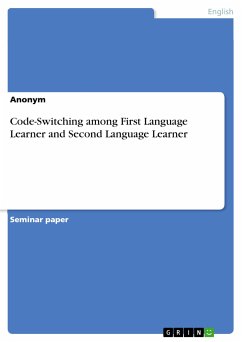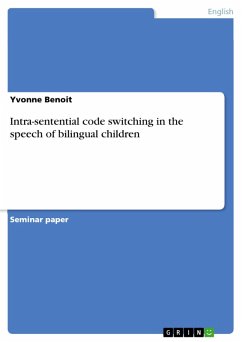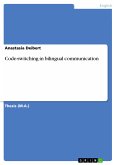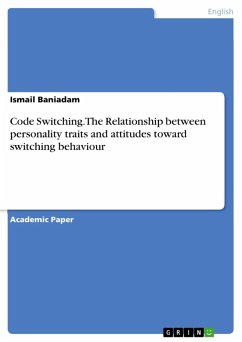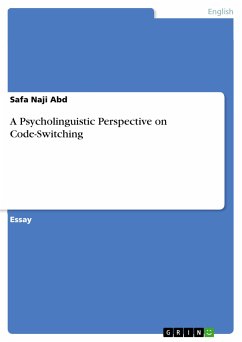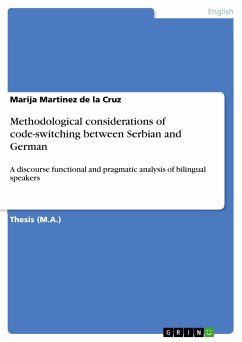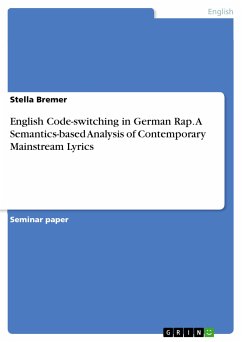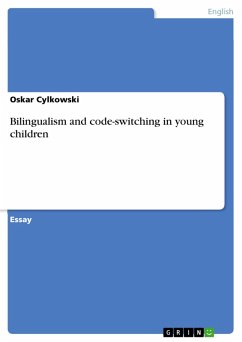Seminar paper from the year 2020 in the subject English Language and Literature Studies - Linguistics, grade: 2.7, University of Heidelberg, course: Meaning of Language, language: English, abstract: How does another language influence Code-Switching and is there a difference between First Language learner and Second Language learner? Employers of the German company Tchibo all got new contracts with English work titles. Fillialleiter are now called "store manager", Bezirksleiter are now called "area manager". Their functions stay the same, just the name changes. I am confused. I visit Japan and can understand a few words of their difficult language. Aisukurimu ("ice-cream"), biru ("beer"), of course I can understand them, it sounds just like the English words. Conversations on my New-Zealand bus tour are changing every few minutes. I hear French, Spanish and English, depending on whom they are talking to. When I visit my best friend, who has French parents, I hear them switching from French to German every few minutes, although they could just continue speaking one language. Why are they switching? Code-Switching has become one of the most common language phenomena in these days. It started to attract the attention of more people, including linguists. This increased interest possibly arose from a more intense language contact in the industrialised world. I hear Franglais, Spanglish, Tex-Mex, Denglish but in a rather negative way, people might have a negative attitude to the increase of Code-Switching, afraid of missing their culture.
Dieser Download kann aus rechtlichen Gründen nur mit Rechnungsadresse in A, B, BG, CY, CZ, D, DK, EW, E, FIN, F, GR, HR, H, IRL, I, LT, L, LR, M, NL, PL, P, R, S, SLO, SK ausgeliefert werden.

